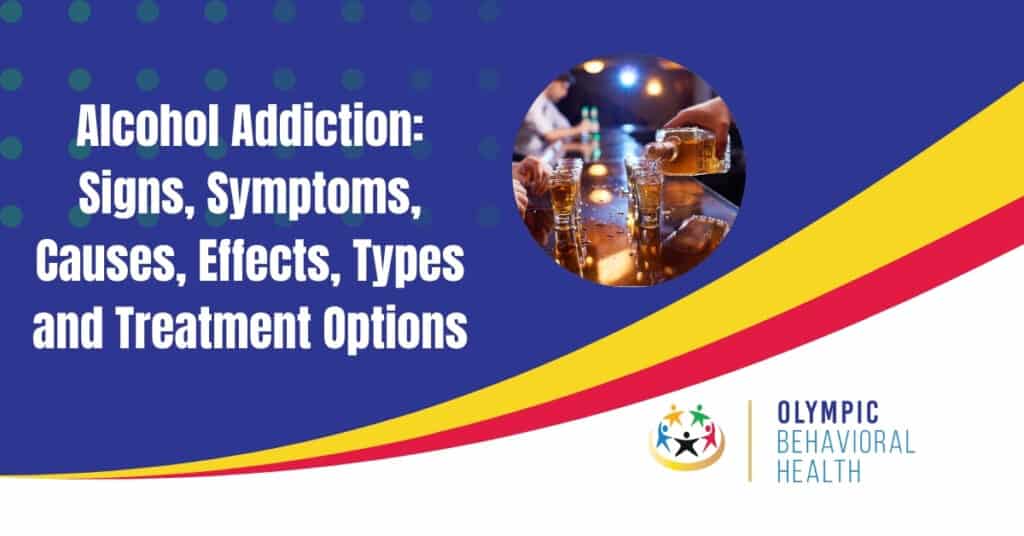Alcohol addiction, a complex disorder, necessitates comprehensive treatment strategies to address its multifaceted nature. Therapies for alcohol addiction often involve a combination of medical interventions, counseling, and support groups to manage withdrawal symptoms and facilitate long-term recovery effectively.
Symptoms of alcohol addiction vary but may include an inability to control alcohol consumption, continued use despite negative consequences, tolerance to alcohol, withdrawal symptoms when not drinking, and neglecting responsibilities due to alcohol use.
The causes of alcohol addiction are multifactorial, involving genetic, environmental, and psychological factors. Genetic predisposition, family history of addiction, early exposure to alcohol, trauma, stress, and mental health disorders are all contributing factors to the development of alcohol addiction.
Treatment for alcohol addiction may involve medications to reduce cravings and withdrawal symptoms, behavioral therapies such as cognitive-behavioral therapy (CBT) and motivational interviewing (MI), support groups like Alcoholics Anonymous (AA), and holistic approaches including meditation and exercise. The efficacy of these treatments varies depending on individual needs and preferences.
What Is an Alcohol Addiction?
Alcohol use disorder (AUD), also known as alcohol addiction, is a medical condition characterized by an impaired ability to stop or control alcohol use despite experiencing adverse social, occupational, or health consequences. This disorder encompasses what some may refer to as alcohol abuse, alcohol dependence, alcohol addiction, or colloquially, alcoholism. AUD can vary in severity, ranging from mild to moderate to severe.
AUD is considered a brain disorder, as lasting changes in the brain caused by alcohol misuse perpetuate the condition and make individuals vulnerable to relapse. Risk factors for developing AUD include patterns of alcohol consumption (such as binge drinking or heavy alcohol use), drinking at an early age, genetics, and family history of alcohol problems, and mental health conditions or a history of trauma.
Healthcare professionals diagnose AUD based on criteria outlined in the Diagnostic and Statistical Manual of Mental Disorders, Fifth Edition (DSM-5). These criteria include symptoms like drinking more than intended, unsuccessful attempts to cut down or stop drinking, spending a lot of time drinking or recovering from its effects, craving alcohol, continued use despite negative consequences, and experiencing withdrawal symptoms when not drinking.

What Are the Signs and Symptoms of An Alcohol Addiction?
Signs and Symptoms of Alcohol Use Disorder (AUD) encompass a spectrum of behavioral, emotional, and physical manifestations, indicating problematic alcohol consumption.
Key Signs and Symptoms of Alcohol Addiction:
- Increased tolerance for alcohol or lack of “hangover” symptoms.
- Impaired control over alcohol use.
- Giving increasing priority to alcohol over other activities.
- Experiencing withdrawal symptoms like trouble sleeping, shakiness, restlessness, nausea, sweating, or a racing heart.
- Blacking out or not remembering events that occurred while drinking.
- Experiencing temporary blackouts or short-term memory loss.
- Exhibiting signs of irritability and extreme mood swings.
- Physical signs such as slurred speech, poor coordination, slow reaction times, and blurry vision.
What Are the Warning Signs that Indicate Someone May Be Struggling with Alcohol Addiction?
Warning signs that indicate someone may be struggling with alcohol addiction include:
- Experiencing temporary blackouts or short-term memory loss after drinking.
- Exhibiting signs of irritability and extreme mood swings, especially when not drinking.
- Making excuses for drinking, such as to relax, deal with stress, or feel normal.
- Choosing drinking over other responsibilities and obligations, neglecting important tasks.
- Becoming isolated and distant from friends and family members.
- Drinking alone or in secrecy, hiding the extent of their alcohol consumption.
- Feeling hungover when not drinking, experiencing physical symptoms of withdrawal.
- Changing appearance and group of acquaintances they hang out with, potentially associating with individuals who enable their drinking behavior.
These warning signs, if observed, should not be ignored. Seeking professional help and intervention is crucial to address alcohol addiction and prevent further harm.
What Physical Symptoms May Be Present in Someone with Alcohol Addiction?
Recognizing the physical toll of alcohol addiction is crucial for understanding its impact on the body. Here are common physical symptoms associated with alcohol use disorder:
Physical symptoms of alcohol addiction:
- Experiencing repeated blackouts
- Mood swings, depression, anxiety, or panic attacks
- Sleeping problems or insomnia
- Gastrointestinal problems such as upset stomach, diarrhea, abdominal pain, bloating, nausea, vomiting, or vomiting blood
- Itching related to alcohol-induced liver damage
- Falls, dizziness, or poor balance
- Burning, tingling, or numbness in the arms, legs, or feet
- Needing a drink first thing in the morning or even in the middle of the night to stave off nausea or stop the shakes.
What Is the Cycle of Alcohol Addiction?
Alcohol addiction is a complex disease that traps people in a repeating cycle of alcohol misuse. This cycle involves three stages: binge/intoxication, negative affect/withdrawal, and preoccupation/anticipation. Each stage fuels the others, making it difficult to break free from addiction.
Breaking the cycle of alcohol addiction requires acknowledgment of the issue, seeking professional help, and staying connected to a recovery plan. Personalized treatment plans can offer individuals the opportunity to overcome alcohol addiction and lead a healthier, sober life.
How Does Alcohol Addiction Develop in The Brain?
Alcohol addiction develops in the brain by affecting neurotransmitter systems, especially dopamine, which influences the brain’s reward circuitry, reinforcing alcohol-seeking behavior despite negative outcomes.
Chronic alcohol consumption alters brain structure and function, leading to tolerance, dependence, and addiction. Individuals with alcohol addiction experience compromised executive functions due to the impact on the prefrontal cortex, affecting decision-making and impulse control. This cycle is further fueled by hyperkatifeia, an intensified negative emotional state that drives continued alcohol consumption to alleviate distress.
Stages of An Alcohol Addiction Cycle
Stage 1
Binge/Intoxication: In this stage, the person drinks alcohol to experience its pleasurable effects, such as relaxation or euphoria. However, over time, the brain adapts to alcohol, and the person needs to drink more and more to achieve the same effect.
Stage 2
Negative Affect/Withdrawal: When the person stops drinking, they experience withdrawal symptoms, which can be physical (sleep problems, tremors) or emotional (anxiety, irritability). These negative feelings can be very uncomfortable and drive the person to drink again to relieve them.
Stage 3
Preoccupation/Anticipation: This stage is marked by a strong craving for alcohol. The person becomes preoccupied with thoughts about alcohol and how to obtain it. They may also experience impulsivity and difficulty controlling their drinking behavior. This can lead to relapse, even after a period of abstinence.
What Causes an Alcohol Addiction?
Alcohol addiction can be caused by a combination of biological, environmental, social, and psychological factors. Biological factors, such as genetics and brain chemistry, play a significant role in alcoholism.
Environmental factors, including a family history of alcohol addiction, can increase the risk of developing alcoholism by normalizing excessive drinking behaviors. Social influences like peer pressure and high-stress levels can also contribute to alcohol addiction by promoting early drinking, exposure to peer pressure, and using alcohol as a coping mechanism.
Psychological factors such as mental health conditions like depression, bipolar disorder, PTSD, and anxiety can elevate the risk of alcoholism as individuals may turn to alcohol to alleviate symptoms, leading to increased tolerance and dependence. Unsupervised underage drinking, particularly engaging in binge drinking without proper parental supervision, can also contribute to the development of alcoholism.

How Can You Prevent an Alcohol Addiction?
To prevent alcohol addiction, individuals can implement various strategies. Firstly, they should limit alcohol consumption by adhering to recommended guidelines, such as no more than four drinks per day for women and no more than five for men. Additionally, seeking support from friends, family, and community resources like Alcoholics Anonymous can provide invaluable assistance in overcoming alcohol problems.
Furthermore, considering behavioral therapies and medications, as suggested by the National Institute on Alcohol Abuse and Alcoholism (NIAAA), can be beneficial. These treatments, including counseling and FDA-approved medications like varenicline and gabapentin, can help individuals manage alcohol dependence effectively. Moreover, incorporating preventive measures at the community level is crucial.
Holder, H. D. in his 2004 research named Community Prevention of Young Adult Drinking and Associated Problems. Alcohol Research & Health, 28(4), 245-248 mentions some key strategies to prevent alcohol addiction. Here are they:
1. Policy Implementation: Establish laws influencing the cost, availability, drinking context, or perceived risks of heavy drinking. Examples include legal drinking age, alcohol outlet licensing, blood alcohol level for driving, and alcohol advertising restrictions.
2. Environmental Changes: Modify the local alcohol environment to decrease heavy drinking and reduce related problems. This may involve adjusting the number, location, and concentration of alcohol outlets, as well as limiting social access to alcohol.
3. Enforcement Measures: Strengthen enforcement of underage drinking laws and other alcohol-related regulations. This can include training alcohol retailers to conduct age identification checks, implementing effective policies for licensed alcohol stores, and imposing legal penalties on outlets that sell to minors.
4. Community Engagement: Involve the community in efforts to reduce underage access to alcohol by changing local policies and practices. This entails community organizing and support for alcohol policy strategies that emphasize changes in the local drinking and alcohol sales environment.
5. Media Advocacy: Utilize local newspapers, radio, and television to increase public support for strategies that reduce alcohol availability. Effective media advocacy can raise awareness about the likelihood of legal consequences for selling or providing alcohol to underage individuals, as well as enhance community perceptions of intervention strategies.
6. Comprehensive Efforts: Implement comprehensive, research-based local prevention initiatives that combine multiple intervention components and policy strategies. These efforts should target structural changes in the community drinking environment and involve collaboration among various stakeholders, including local government, law enforcement, schools, and community organizations.
7. Sustainable Practices: Ensure that community prevention efforts are sustainable beyond the duration of specific projects. This may involve incorporating alcohol-related policies into local administrative codes and procedures, maintaining community support for enforcement efforts, and continuously monitoring and evaluating the effectiveness of interventions over time.
By combining these strategies, communities can effectively prevent alcohol addiction and associated problems among young adults while promoting healthier drinking behaviors and environments.
What Are the Effects of Alcohol on The Body?
Effects of alcohol on the body include:
Brain
- Interferes with communication pathways.
- Affects mood, behavior, and cognitive function.
- Impairs coordination and clear thinking.
Heart
- Long-term or excessive consumption can lead to heart damage.
- Problems include cardiomyopathy, arrhythmias, stroke, and high blood pressure.
Liver
- Heavy drinking causes liver issues like fatty liver, alcoholic hepatitis, fibrosis, and cirrhosis.
Pancreas
- Stimulates production of toxic substances, leading to pancreatitis.
- Inflammation impairs enzyme and hormone production for digestion.
Cancer
- Increases risk of various cancers, including head and neck, esophageal, liver, breast, and colorectal cancer.
- Even moderate drinking can elevate cancer risk.
Immune System
- Weakens immune function, making the body susceptible to diseases like pneumonia and tuberculosis.
- Impairs the body’s ability to fight infections, even up to 24 hours after drinking heavily.
What Are the Short-Term Effects of Alcohol Misuse?
Short-term effects of alcohol misuse include immediate impairment of various cognitive and physical functions. Within about 10 minutes of consumption, alcohol enters the bloodstream, leading to a rise in blood alcohol concentration (BAC).
This can result in reduced inhibitions, concentration problems, slurred speech, motor impairment, breathing difficulties, confusion, and even coma or death in extreme cases. Memory problems may also arise. Additionally, alcohol misuse can contribute to accidents, violent behavior, risky actions, and an increased risk of suicide or homicide.
What Are the Long-Term Effects of Alcohol Addiction on The Body?
Long-term alcohol addiction can have devastating effects on the body. Some of the major long-term health risks associated with excessive alcohol use include:
- Chronic Diseases: Excessive alcohol consumption can lead to the development of chronic diseases such as high blood pressure, heart disease, stroke, liver disease (including cirrhosis), and digestive problems.
- Cancer: Alcohol consumption is linked to an increased risk of various types of cancer including breast, mouth, throat, esophagus, voice box, liver, colon, and rectum cancer.
- Weakening of the Immune System: Long-term alcohol abuse weakens the immune system, making individuals more susceptible to infections and illnesses.
- Cognitive Impairment: Prolonged alcohol abuse can result in learning and memory problems, including conditions such as dementia, as well as poor academic or work performance.
- Mental Health Issues: Alcohol addiction is associated with an increased risk of mental health disorders such as depression, anxiety, and other mood disorders.
- Social Problems: Excessive alcohol use can lead to social problems including difficulties in relationships, family problems, job-related issues, and unemployment.
- Alcohol Use Disorders: Long-term alcohol abuse can result in alcohol use disorders, also known as alcohol dependence or alcoholism, which can have severe physical, psychological, and social consequences.
These long-term effects highlight the importance of moderation and responsible drinking to minimize the risk of harm to both physical and mental health.
How Does Alcohol Misuse Impact Mental Health and Lead to Psychiatric Symptoms?
Alcohol misuse profoundly impacts mental health by altering brain chemistry, leading to negative emotions like anger, depression, and anxiety, and impeding cognitive function, exacerbating psychiatric symptoms. This link between alcohol and mental health is bidirectional, with individuals using alcohol to cope with mental health issues while alcohol abuse can worsen existing mental health conditions.
Long-term alcohol dependence not only poses serious health risks such as heart disease and cancer but also contributes to social problems like unemployment and homelessness, further deteriorating mental well-being. It’s crucial to recognize the intertwined relationship between alcohol misuse and mental health to implement effective interventions and support mechanisms for individuals struggling with these challenges.
What Are the Social Effects of Alcohol Addiction?
The social effects of alcohol addiction include stigma, ridicule, and social ostracism due to humiliating drinking incidents. Hangovers can lead to poor work performance and workplace accidents, jeopardizing job security. Alcohol addiction strains personal relationships and may lead to the loss of friendships. Teenagers of parents with alcohol problems tend to drink more frequently and heavily, often to cope with their own problems. Other consequences include financial problems, limited career opportunities, and reduced sexual performance.
What Is the Risk of An Alcohol Addiction?
Alcohol addiction poses a multifaceted risk to individuals, affecting various aspects of their health and well-being. Here’s an overview of the detrimental effects of alcohol addiction on the body, mind, and life:
- Alcohol Poisoning: Excessive alcohol consumption can lead to alcohol poisoning, where toxic levels of alcohol overwhelm the body’s systems. Symptoms may include coma, respiratory failure, and cardiac arrest, with severe cases proving fatal, particularly among individuals aged 35 to 64.
- Cancer: There is a link between alcohol consumption and various cancers, including those of the oral cavity, pharynx, larynx, esophagus, liver, colorectum, and female breast. The risk of cancer rises linearly with increasing alcohol consumption.
- Heart Failure: Heavy drinking can increase blood pressure, leading to a heightened risk of heart attacks and strokes. Additionally, alcohol’s empty calories contribute to obesity, further straining the cardiovascular system and increasing susceptibility to heart disease.
- Liver Damage: The liver metabolizes alcohol, but chronic alcohol abuse can scar and inflame the liver, interfering with its ability to function properly. Alcohol consumption, especially heavy drinking, significantly increases the risk of alcoholic liver disease, alcoholic liver cirrhosis, and alcohol-induced pancreatitis. Continued alcohol consumption after disease onset exacerbates the risk of severe consequences.
- Impaired Judgment: Alcohol impairs cognitive functions and judgment, increasing the likelihood of engaging in risky behaviors, including violence, accidents, and impaired decision-making.
- Mental Health Disorders: Alcohol abuse is frequently connected to mental health issues, including depression, anxiety, and suicidal thoughts. Alcohol consumption considerably impacts the likelihood of developing alcohol dependence and other mental health disorders. Additionally, it is associated with epilepsy, as heavy alcohol users have a higher risk of meeting the criteria for alcohol dependence.
- Risk of Accidents: Driving under the influence of alcohol poses a significant risk to oneself and others on the road. Thousands of lives are lost in alcohol-related car accidents each year, with victims including innocent children.
- Increased Mortality: Alcohol contributes to approximately three million deaths globally each year, surpassing the mortality rates of diseases like HIV. From 2007 to 2017, alcohol-related deaths in the United States increased by 35%, highlighting the urgent need for intervention and treatment.
- Violence: Alcohol abuse is associated with higher rates of violent behavior, both as
perpetrators and victims. Approximately 40% of criminals convicted of violent crimes had high blood alcohol content at the time of arrest.

How Does an Alcohol Withdrawal Feel Like?
Alcohol withdrawal is a challenging experience characterized by discomfort, anxiety, and unease. The process can be likened to a constant edge, with tension that’s difficult to shake off. When an individual stops drinking, their body reacts with a series of sensations that may initially seem like everyday stress.
Alcohol withdrawal can feel like an unscratchable itch, accompanied by mild anxiety that persists throughout the day. This discomfort can be tempting to alleviate by consuming more alcohol. However, the physical withdrawal typically lasts for a maximum of 14 days, after which the psychological conditioning and associations with alcohol become the primary challenges.
While alcohol withdrawal can feel like torture, it is a temporary discomfort that leads to a brighter, healthier future. With each passing day, individuals reclaim a part of themselves, ultimately realizing that they no longer require alcohol to cope with life’s stresses.
What Happens when Someone Abruptly Stops Drinking Alcohol?
When someone abruptly stops drinking alcohol, they may experience acute alcohol withdrawal syndrome. Initial symptoms can include tremors, anxiety, insomnia, restlessness, and nausea. In some cases, these symptoms may constitute the entire syndrome and may subside without treatment after a few days. However, without help, there may be life-threatening complications, particularly in individuals with alcohol addiction.
What Are the Symptoms of Alcohol Withdrawal?
Alcohol withdrawal can range from mild discomfort to severe, potentially life-threatening complications. Here’s an overview of the symptoms:
- Mild Symptoms:
- Anxiety
- Tremors
- Mood changes
- Sleep disturbances
- Jumpiness
- Upset stomach
- Headache
- Fatigue
- Sweating
- Loss of appetite
- Dilated pupils
- Severe Symptoms:
- Fever
- Fast breathing
- Severe sweating
- Mental confusion
- Seizures
- Hallucinations
Research done by Trevisan, L. A., Boutros, N., Petrakis, I. L., & Krystal, J. H. (1998). Complications of Alcohol Withdrawal: Pathophysiological Insights published in Alcohol Health and Research World mentions – Alcohol withdrawal (AW) can lead to severe illness and even death in some cases. Seizures may occur during AW, with their severity potentially increasing with subsequent episodes. Delirium tremens is another possible complication, characterized by hallucinations, mental confusion, and disorientation. Cognitive impairment and delirium during AW can result in a chronic memory disorder called Wernicke-Korsakoff syndrome.
AW activates glutamate systems and is associated with increased N-methyl-D-aspartate (NMDA) receptor function, which may contribute to the neurotoxic and seizure-inducing effects of increased glutamate release during withdrawal. Wernicke’s syndrome, characterized by severe cognitive impairment, delirium, abnormal gait, and paralysis of certain eye muscles, can occur during AW due to thiamine deficiency.
What Is the Recommended Course of Action for Managing Alcohol Withdrawal?
According to Newman, R. K., Gallagher, M. A. S., & Gomez, A. E.’s 2023 study on Alcohol withdrawal published In StatPearls, the treatment options for alcohol addictions include:
- Supportive therapy: Intravenous rehydration, correction of electrolyte abnormalities.
- Medication: Long-acting benzodiazepines like diazepam or lorazepam for severe symptoms.
- Adjunct therapy: Phenobarbital, phenytoin, or intubation with sedation for withdrawal seizures.
- Hospital admission for lack of support systems, abnormal lab results, high risk of Delirium tremens, history of withdrawal seizures, psychiatric issues, substance abuse, and suicidal ideations.
- Preventive medication: Oral chlordiazepoxide, oxazepam, neuroleptics, anticonvulsants like carbamazepine, and valproic acid.
- For refractory cases: Propofol for delirium tremens, baclofen for muscle spasms.
- Toxic alcohol co-ingestion management: Consultation with a toxicologist.
How Can You Prevent an Alcohol Relapse?
To prevent an alcohol relapse, avoid triggers by steering clear of people, places, and situations associated with drinking. Seek support from both clinical and non-clinical sources when needed. Engage in meaningful activities to fill your time and distract from cravings. Practice self-care by maintaining a balanced lifestyle with adequate sleep, nutrition, exercise, and relaxation techniques. Challenge negative thoughts and behaviors to think differently about alcohol and its role in your life.
What Treatment Options Can Help with Alcohol Addictions?
Treatment options for alcohol addiction include detoxification, counseling, medication, and behavior modification. Detoxification helps manage withdrawal symptoms, while counseling addresses psychological aspects of addiction. Medications like naltrexone, acamprosate, and disulfiram can reduce cravings or deter drinking. Behavior modification techniques aim to change unhealthy drinking behaviors and develop coping strategies. These approaches can be tailored to individual needs and may involve outpatient or residential programs.
Treatment options for alcohol addictions can vary based on individual needs and preferences. Here are some common approaches:
- Behavioral Treatments: These involve counseling sessions aimed at changing drinking behaviors. Cognitive-behavioral therapy (CBT), motivational enhancement therapy (MET), marital and family counseling, and brief interventions are examples of behavioral treatments. They focus on identifying triggers, developing coping strategies, and setting achievable goals.
- Medications: Several FDA-approved medications can help individuals reduce or stop drinking and prevent relapse. These include Naltrexone, Acamprosate, and Disulfiram. These medications can be used alone or in combination with behavioral therapies.
- Mutual-Support Groups: Programs like Alcoholics Anonymous (AA) offer peer support for individuals seeking to quit or reduce alcohol consumption. These groups can complement professional treatment and provide additional support.
- Primary Care Involvement: Consulting with a primary care physician is often recommended as a first step. They can assess drinking patterns, provide referrals to specialists or treatment programs, and prescribe medications when appropriate.
- Specialized Treatment Programs: Inpatient or outpatient treatment programs may offer a structured environment for individuals to address their alcohol addiction. These programs may include a combination of therapies, medical supervision, and support services.
- Combination Approaches: Some individuals may benefit from combining different treatment approaches for a more comprehensive approach to recovery. This could involve medication-assisted treatment alongside behavioral therapy and support group participation.
- Holistic Therapies: Complementary and alternative therapies such as yoga, mindfulness practices, and nutritional counseling may also support recovery by addressing the physical, emotional, and spiritual aspects of addiction.
It’s important for individuals struggling with alcohol addiction to seek professional guidance and tailor treatment options to their specific needs and circumstances. Additionally, ongoing support and follow-up care are essential for maintaining sobriety and preventing relapse.
Alcohol Addiction Treatment that We Offer
Alcohol addiction is a complex disorder that can have a devastating impact on individuals, families, and communities. It is a progressive disease that can lead to physical, mental, and emotional problems.
Many factors can contribute to alcohol addiction, including genetics, environment, and personal choices. Treatment for alcohol addiction can include medications, behavioral therapies, support groups, and holistic approaches. The most effective treatment plan will vary depending on the individual’s needs and preferences.
At Olympic Behavioral Health in West Palm Beach, FL, we offer tailored alcohol addiction treatment combining inpatient and outpatient programs. With a focus on your individual needs, we provide medical detox, therapy, and holistic approaches in a supportive environment.

Share This Post



